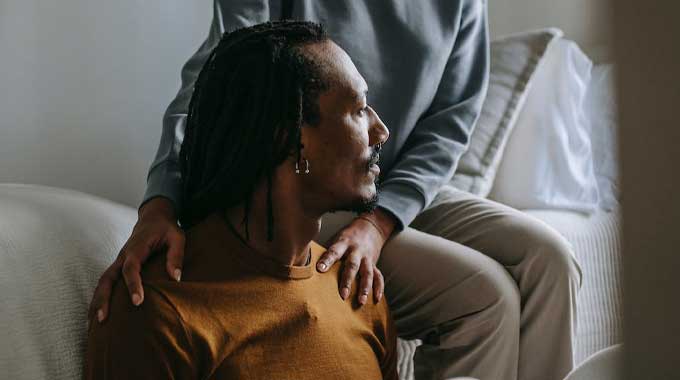WHEN A JURY convicted Ross Ulbricht three months ago of running the Silk Road, it closed the legal question of whether he was guilty of masterminding that billion-dollar online black market for drugs. But as Ulbricht’s sentencing approaches, his defense is opening another ethical question that may be far more societally important: Did the Silk Road’s newly invented method of narcotics e-commerce actually reduce the risks of drug use?
In a memo to judge Katherine Forrest filed Friday afternoon, Ulbricht’s defense has asked her to consider the Silk Road’s potential for “harm reduction” when she determines Ulbricht’s sentence in less than two weeks. The memo argues that the Silk Road’s community provided drug users a more reliable way to buy untainted drugs, that Ulbricht had expressly tried to encourage “safer” drug use on his black market site, and that the digital nature of the site’s commerce may have protected users from physical interactions that in the traditional drug trade often lead to violence.
“In contrast to the government’s portrayal of the Silk Road web site as a more dangerous version of a traditional drug marketplace, in fact the Silk Road web site was in many respects the most responsible such marketplace in history, and consciously and deliberately included recognized harm reduction measures, including access to physician counseling,” writes Ulbricht’s lead defense attorney Joshua Dratel in the filing. “In addition, transactions on the Silk Road web site were significantly safer than traditional illegal drug purchases, and included quality control and accountability features that made purchasers substantially safer than they were when purchasing drugs in a conventional manner.”
The memo argues that the Silk Road’s community provided drug users a more reliable way to buy untainted drugs.
One of the Silk Road’s innovations, after all, was to bring an eBay-like system of ratings and reviews for online drug sales. That system gave buyers a way to quickly weed out dealers selling lower quality or less pure substances. The site maintained a section of its user forum devoted to safer drug use, where users could ask each other for advice and help with health problems. And Ulbricht’s defense points to archived messages showing that Ulbricht even offered at one point to pay $500 a week to a Spanish doctor, Fernando Caudevilla, who frequented the forum and answered users’ questions. Ulbricht also asked Caudevilla if he’d be willing to chemically test drugs on the site for quality, though it’s not clear if that testing scheme was ever put into practice.
Regardless, Ulbricht isn’t likely to receive a light sentence. The 31-year-old Texan was convicted of seven felony charges in February that include conspiracies to traffic in narcotics and money laundering, as well as a “kingpin” statute reserved for the leaders of organized criminal operations, which could add another decade to his prison time. In all, he faces a minimum of 30 years in prison and a maximum of life. Ulbricht’s defense team has already said it plans to appeal the case.
Click here If you are looking for rehab in Southern California
The prosecution in Ulbricht’s case has revealed that it plans to present at Ulbricht’s sentencing hearing six cases of individuals who died from overdoses of drugs bought on the Silk Road. But in its Friday filing, the defense addressed and rebutted each of those examples. In a grisly section of a separate memo, it goes through the details of those six deaths, in each case arguing that the deceased suffered from earlier health conditions and questioning whether the death-inducing drugs had actually been bought from vendors on the Silk Road. “It is simply impossible for the government to prove that drugs obtained from Silk Road ‘caused’ death, and in certain cases, the government cannot even establish to any degree of certainty that any of the drugs ingested came from Silk Road,” Dratel writes.
The site maintained a section of its user forum devoted to safer drug use, where users could ask each other for advice and help with health problems.
To bolster its argument about the societal benefits of the Silk Road, the defense includes in its filing sworn statements from a series of experts, including Tim Bingham, the administrator of an addiction-focused non-profit known as the Irish Needle Exchange Forum, and Meghan Ralston, the former director of harm reduction for the Drug Policy Alliance. Bingham, for instance, published three studies in the International Journal of Drug Policy about the Silk Road based on surveys of users. He writes in his statement that he “concluded that Silk Road forums…appeared to act as an information mechanism for the promotion of safer and more acceptable or responsible forms of recreational drug use.”
Silk Road’s member subcultures offered a viable means of enmeshing safer drug use and encouraging hard reduction amongst a very hard to reach and informed drug-using population. My research revealed a similar ethos among drug vendors. As with Silk Road buyers, participants in a study of Silk Road vendors described themselves as possessing a personal interest in the intelligent and responsible use of drugs.
The Drug Policy Alliance’s Ralston, in her own accompanying statement, points to the fact that drug buyers and sellers were insulated from physical violence thanks to their use of the Silk Road’s anonymity and digital protections:
Using Silk Road could be seen as a more responsible approach to drug sales, a peaceable alternative to the often deadly violence so commonly associated with the global drug war, and street drug transactions, in particular. None of the transactions on Silk Road, for instance, resulted in women drug buyers being sexually assaulted or forced to trade sex for drugs, as remains a possibility in some street-level drug transactions. Nor did any Silk Road transactions result in anyone having a gun pulled on them at the moment of purchase, also a danger present in face-to-face street-level drug transactions.
Whether or not you buy her argument about the Silk Road’s virtues, Ralston concludes that taking down the site will almost certainly do little to stem the sale of drugs, online or off. On that point, there’s little doubt: sites like Agora, Blackbank and dozens of others have already sprouted across the Dark Web to fill the economic vacuum the original Silk Road left in its wake. “Silk Road is not the only website of its kind and its displaced users will likely either turn to a competitor site or seek out drugs in other ways,” Ralston writes in her statement. “This approach to fighting the war on drugs has never worked, and it’s not likely to start working now.”





